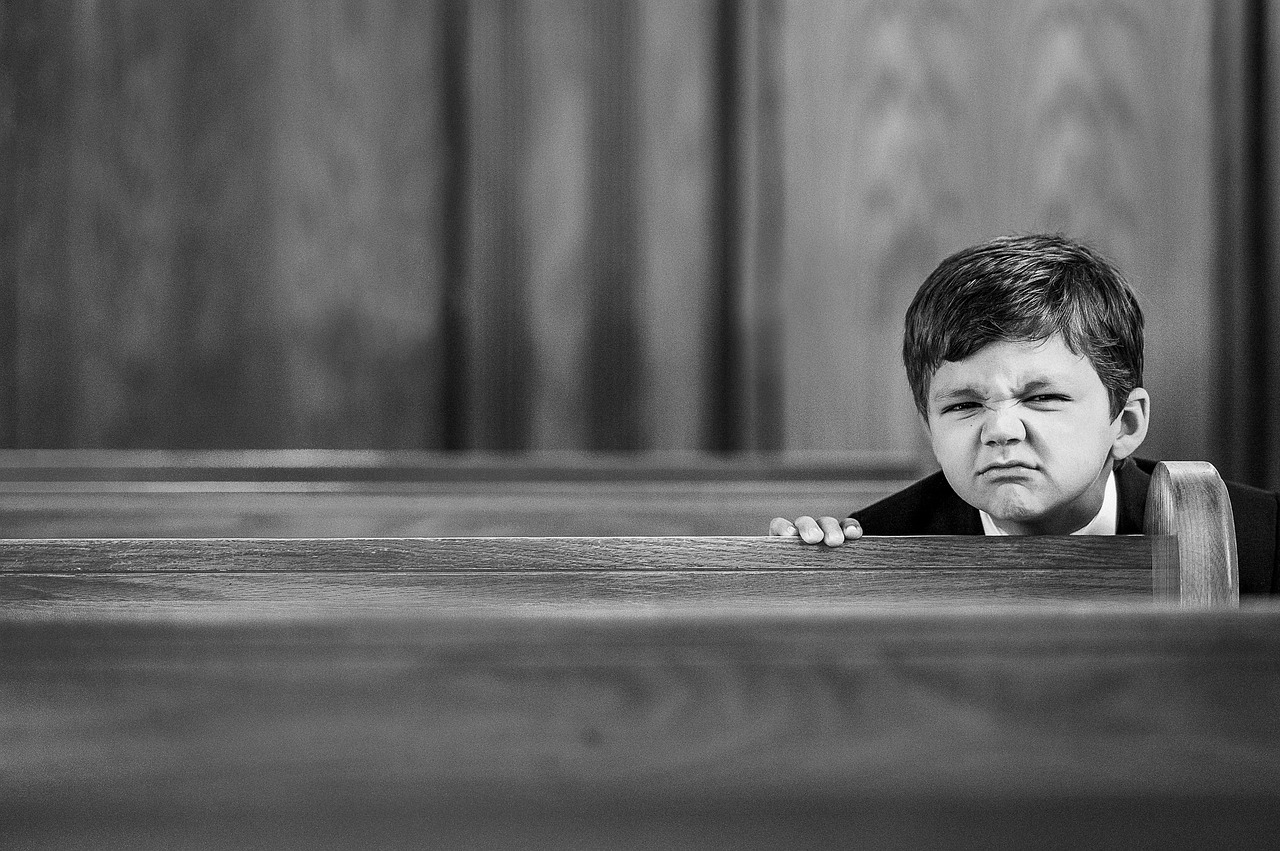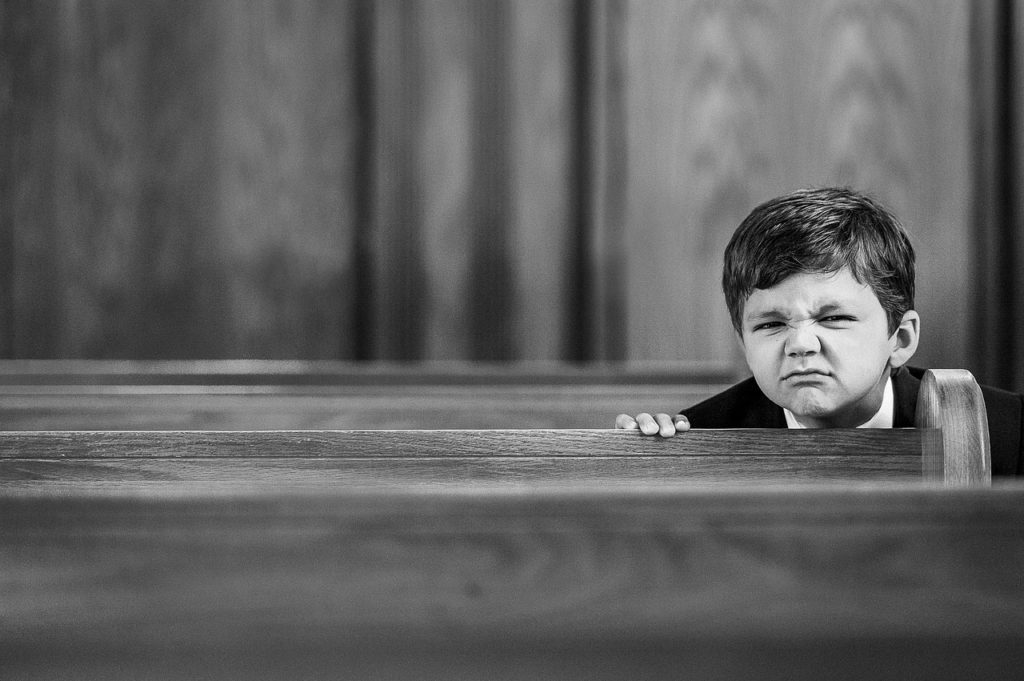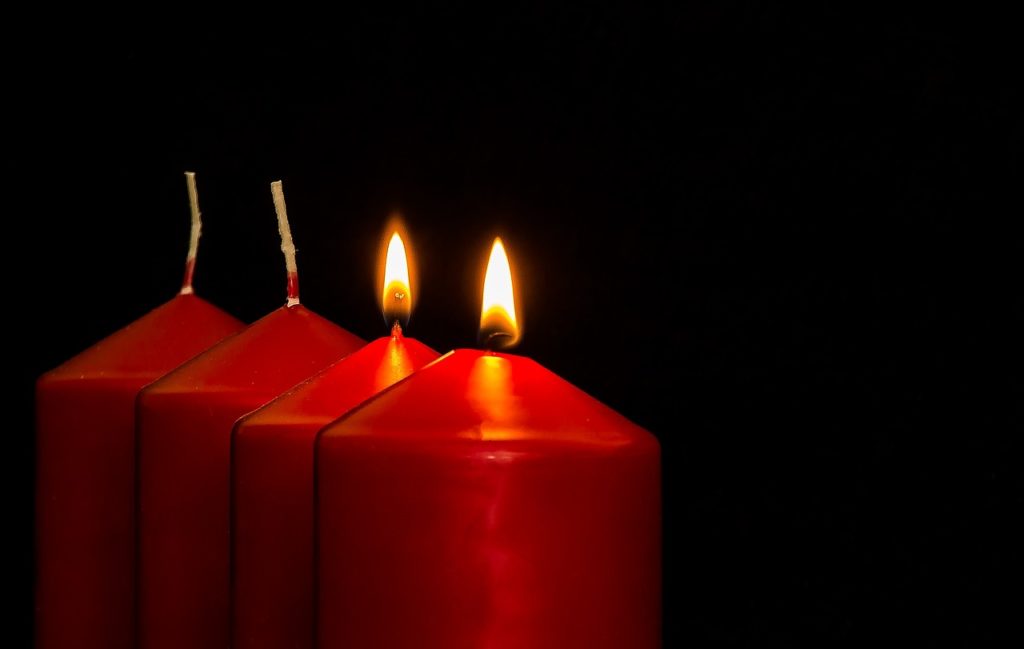God had the first word in the worship service. And he gets the last word. His last word is a blessing.
The Benediction
We have encountered our active God throughout the worship service and are now released into the world with his blessing. The benediction reminds us that the Grace we received through the Word and Sacrament, follow us out the door. The benediction signifies that our whole lives are covered by his Grace.
Sacred and Secular Dualism
The ritual of the benediction can train us into a proper understanding of the relationship between Sunday and Monday. We need some instruction here because our culture proclaims that Sunday has very little to do with Monday.
Dualism is the idea that all of life can be separated into two categories: the sacred and the secular. Traditionally, faith and life may have been distinct, but they weren’t separable. Faith and life were part of each other. Today, the modern obsession with clear categories assumes a radical separation between the two. Modern life is filled with these dualities, false dichotomies. Here are just a few:
-
- physical and spiritual,
- temporal and eternal,
- natural and supernatural,
- body and soul,
- faith and reason,
- state and church,
- public and private,
- science and religion,
- Sunday and the rest of the week.
The Sacred/Secular dualism profoundly affects how both Christians and non-Christians experience reality. In many cases, non-Christians find it fairly easy to dismiss half of the equation and live under the illusion that half of reality isn’t even there, or at least it is irrelevant. Christians maintain at least an intellectual belief in both sides, but many see them separated by a vast abyss.
These 12 questions can begin to help us see the degree to which we, or our individual congregation is unknowingly separating God out from the rest of life.
-
- Do you think that singing worship songs and prayer are more spiritual than eating and sex?
- Do you reduce redemption to the saving of souls?
- Do you speak of going to heaven when we die?
- Do you think that eternal life starts when we die, or sometime later?
- Do you believe that missionaries and pastors have a more spiritual calling than plumbers and accountants?
- Do you assert that certain parts of the creation are “off limits” to Christians?
- Are you more concerned with personal piety than the environment?
- Do you assume that faith has very little effect on the work we do?
- Do you believing that one’s spare time has nothing to do with what one believes?
- Do you thinking that the church is out of touch with “real life”?
- Do you use the word singing interchangeably with the word worship?
- Do you live as if work is an unpleasant necessity?
[click_to_tweet tweet=”Here are 12 questions that can help you determine if you are suffering from Christian dualism. 1. Do you think that singing worship songs and prayer are more spiritual than eating and sex? #dualism” quote=”Here are 12 questions that can help you determine if you suffering from Christian dualism. 1. Do you think that singing worship songs and prayer are more spiritual than eating and sex?”]
In Modernism there is a radical separation between the sacred and the secular. It is often useful to differentiate between the two, to consider them as aspects of a whole, but they are each a whole unto itself. Our bodies and our souls, our reason and our emotions are all part of a whole person. Our private lives and our public lives are both parts of a whole life. Worship in the church of Sunday and worship in the world are a part of each other. The benediction is a declaration that that the two are inseparable. In both life is worship and worship is life. We are depended on God’s Grace as we worship in church, and we are dependent on Gods Grace as we worship in the world.
[click_to_tweet tweet=”Worship in the church on Sunday and worship in the world are a part of each other, and it is in the benediction that the two are fused in to an integrated whole. #benediction #worship #dualism” quote=”Worship in the church on Sunday and worship in the world are a part of each other, and it is in the benediction that the two are fused in to an integrated whole.”]
In the benediction God says, “Go. Make disciples, Do the work for which I equipped and called you.” The benediction blurs the lines between our worship in church and our worship in the world.
The Order of Worship (1): Call to Worship
The Order of Worship (2): Confession
The Order of Worship (3): The Sermon
The Order of Worship (4): The Creed
The Order of Worship (5): Pastoral Prayer
The Order of Worship (6): The Lord’s Supper





